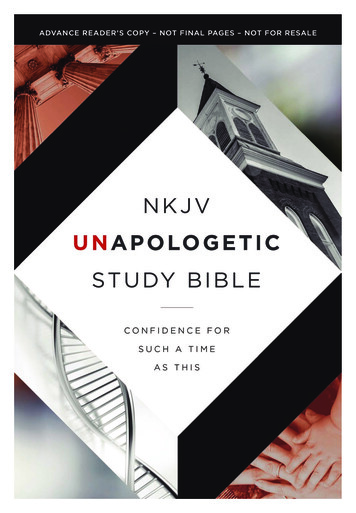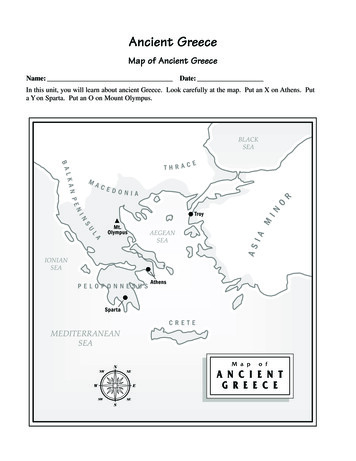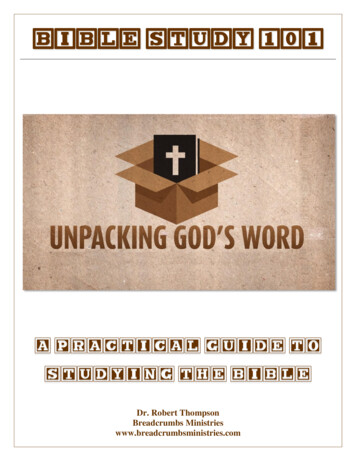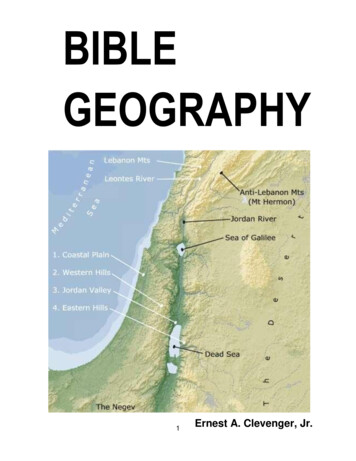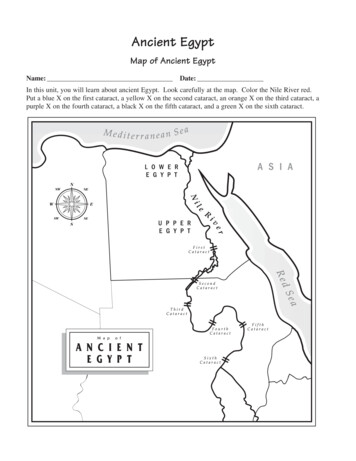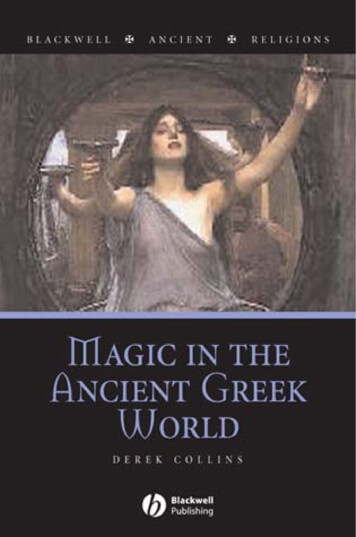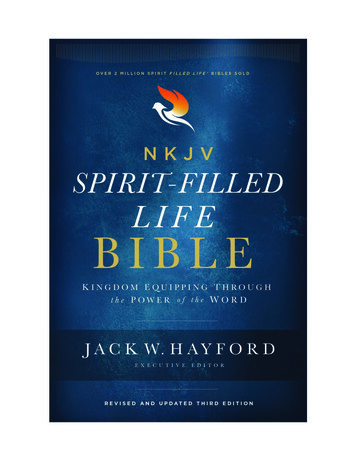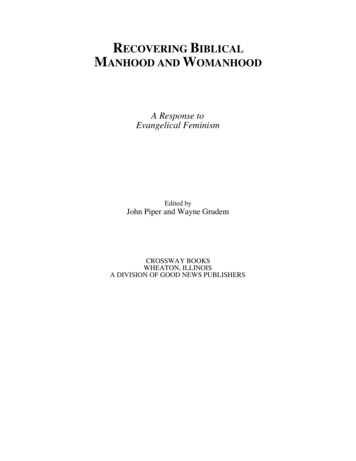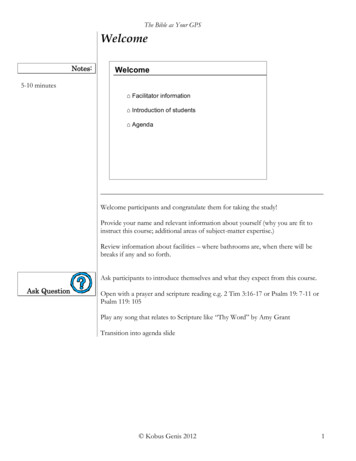
Transcription
NKJVAncientModernBibleJeremy Bouma, General Editorwww.ThomasNelson.com9780785215950 int 00 fm NKJV AncientModern.indd 56/15/18 9:02 AM
NKJV Ancient-Modern BibleCopyright 2018 by Thomas Nelson, a division of HarperCollins Christian Publishing, Inc.The Holy Bible, New King James Version Copyright 1982 by Thomas Nelson.Library of Congress Control Number: 2018939061This Bible was set in the Thomas Nelson NKJV Typeface, created at the2k/denmark type foundry.The text of the New King James Version (NKJV ) may be quoted or reprinted without prior written permission with the following qualifications: (1) up to and including 1,000 verses may be quoted in printed formas long as the verses quoted amount to less than 50% of a complete book of the Bible and make up lessthan 50% of the total work in which they are quoted; (2) all NKJV quotations must conform accurately tothe NKJV text.Any use of the NKJV text must include a proper acknowledgement as follows:Scripture taken from the New King James Version . Copyright 1982 by Thomas Nelson. Used bypermission. All rights reserved.However, when quotations from the NKJV text are used in church bulletins, orders of service, Sunday schoollessons, church newsletters, and similar works in the course of religious instruction or ser vices at a place ofworship or other religious assembly, the following notice may be used at the end of each quotation: NKJV.For quotation requests not covered by the above guidelines, write to Thomas Nelson, Attention: Bible Rightsand Permissions, P.O. Box 141000, Nashville, TN 37214-1000.The article “Meditating on His Word” has been adapted from Chapter 10, “As Conversation: Mediating onHis Word,” in Timothy Keller, Prayer: Experiencing Awe and Intimacy with God. New York: Dutton, 2014.The article “What the Whole World Is Waiting For” has been adapted from Chapter 6, “What the WholeWorld’s Waiting For,” in N. T. Wright, Surprised by Hope: Rethinking Heaven, the Resurrection, and the Mission of the Church. New York: HarperOne, 2008.All rights reserved.Printed in China18 19 20 21 22 23 24 25 /AMC/ 17 16 15 14 13 12 11 10 9 8 7 6 5 4 3 2 19780785215950 int 00 fm THIRD PROOFS.indd 64/6/18 4:09 PM
INTRODUCTIONWhen you pick up the Bible and begin reading, you’re not alone; you’re joined by a vibrant, ancient- modern community of readers and interpreters, students of the Word, worshipers of God.This fellowship stretches across the globe, encompassing charismatic Anglicans in Singapore,non- denominational Baptists in London, and Orthodox believers in Rio de Janeiro. And it’s a fellowship that reaches back through time, from the very earliest disciples of Jesus living in Jerusalem,through the second- century converts in Roman- ruled Africa and Europe, to medieval monastics,and onward to reformers, pietists, missionaries, revivalists, and more.This church community mosaic has always been held together by the book you’re holding inyour hands— the living Word of God. Despite the debates and divisions that mark church history,Christians at all times and in all places have been united by their love of Scripture and their desireto encounter God in its pages.The Ancient- Modern Bible reflects that reality. Every aspect is designed to remind you that,as you read the Word of God, you’re a part of a sacred communion made up of believers past andpresent. As you dive in, you’ll notice a beautiful layout that purposefully juxtaposes ancient elements (such as golden ornamental drop caps and marginal commentary) with modern design andtypography. The carefully selected features include: Commentary— Taking inspiration from ancient and medieval manuscripts of Scripture, themargins of this Bible are filled with thousands of verse- by- verse and passage- by- passagecomments from the church’s greatest teachers and thinkers— from Polycarp to Aquinas,from Spurgeon to Bonhoeffer. The accompanying journaling space invites readers to jointhis vast stream of Scripture study and reflection. Book Introductions— All- new book introductions provide background informationpertaining to authorship and purpose with special attention paid to the book’s significancein church history and continued applicability today. Biographies— Dozens of full- page articles share the inspiring life stories of men andwomen who were transformed by the gospel, leading them to serve Christ with creativityand courage. Essays— Covering the major, central doctrines and teachings of the church— creation andsin, Trinity, Christology, ecclesiology, salvation, prayer, and resurrection— these essays pointreaders to the beliefs and practices that unite the church, and highlight both their scripturalfoundations and historical developments.9780785215950 int 00 fm THIRD PROOFS.indd 94/6/18 4:09 PM
INTRODUCTION x Creeds of the Church— A small collection of the creeds and statements that have longexpressed Christian orthodoxy, these words are the hard- won result of the church’sinsistence on taking Scripture seriously. As Christians of the first few centuries wrestledwith the Bible’s challenging teachings, they were compelled to clarify key doctrines in orderto help establish and protect the community of faith. Sacred Art— Further reinforcing the continuity of ancient and modern elements withinthe church, a special section at the end of this Bible displays sacred art from throughoutChristian history— mosaics, symbols, icons, and paintings that point readers to the eventsand truths of Scripture.The church in every generation has gathered around the Bible to read, study, ponder, debate,and meditate— and through these shared activities God has shaped His people, setting them apartto love Him and each other, to worship, and to work toward the kingdom. Our prayer is that theAncient- Modern Bible will encourage and strengthen you, and that your own study of this incomparable book will be enriched by the reflections and insights of faithful men and woman from acrossthe centuries who, just like you, came to Scripture to learn from the Author of life.— The Publisher9780785215950 int 00 fm THIRD PROOFS.indd 104/6/18 4:09 PM
AUTHORAUDIENCEDATEPURPOSETHEMESJeremiahThe people of Judahand Jerusalem duringthe reigns of theirlast five kingsBetween 626and 586 B.C.Jeremiah wrote to call God’speople from their wickedways in order to avoid thecoming divine judgmentwhile also offering the hopeof forgiveness, redemption,and restoration.Judgment;repentance;forgiveness andredemption; rescueand restoration; andthe New CovenantThe Book of Jeremiah is a prophetic book that is both a warning and an offer of hope. In it, the prophetcalls God’s people to turn from their wicked ways in order to avoid judgment, and instead to livefaithfully. In this, he holds out the possibility of forgiveness, redemption, and restoration. “The generalsubject of his prophecies,” explained Matthew Henry, “is the idolatry and other sins of the Jews; the judgments by which they were threatened, with references to their future restoration and deliverance, andpromises of the Messiah. They are remarkable for plain and faithful reproofs, affectionate expostulations,and awful warnings.”The book launches with the call of God on Jeremiah’s life. He commissions him to bear a message ofjudgment, which stems from two sins His people have committed repeatedly: “They have forsakenMe, the fountain of living waters, and hewn themselves cisterns— broken cisterns that can hold nowater” (2:13). John Wesley explained the living water was “a metaphor taken from springs, called ‘living,’because they never cease, or intermit; such had God’s care and kindness been over them”— which Israelhad forsaken. And the cisterns were “either their idols, which are empty vain things, that never answerexpectation, or the Assyrians and Egyptians. Indeed, all other supports, that are trusted to besides God,are but broken vessels”— which God’s people had willingly embraced in place of the Lord.Yet the Lord was gracious and compassionate, for He invited His people to return to Him, declaring:“ ‘I will not cause My anger to fall on you. For I am merciful,’ says the Lord: ‘I will not remain angryforever’ ” (3:12). However, they refused. “Because they have forsaken My law which I set before them,” saidthe Lord, “and have not obeyed My voice, nor walked according to it. . . . I will scatter them also amongthe Gentiles, whom neither they nor their fathers have known. And I will send a sword after them until Ihave consumed them.” (9:13–16). And He did, at the hand of the Assyrians, Egyptians, and Babylonians,bringing judgment upon His people. Over the years, the communion of saints has drawn important lessons from this urgent warning against unrepentant sin and impending judgment.Finally, judgment breaks forth against Judah when Babylon attacks the city of Jerusalem. “Behold, Iam against you, O inhabitant of the valley, and rock of the plain,” said the Lord. . . . “I will punish youaccording to the fruit of your doings” (21:13, 14). John Calvin explained, “God threatens that He wouldrender to the Jews what they merited, because they had not ceased to provoke His wrath.” Judah and herkings had forsaken the Lord’s covenant, and as a result, they would be destroyed. Yet there was also apromise for the people: “ ‘Behold, the days are coming,’ says the Lord, ‘That I will raise to David a Branch9780785215950 int 04 isa mal NKJV AncientModern FOURTH PROOFS CC17.indd 9204/10/18 12:20 AM
JEREMIAHThe Book ofof righteousness; a King shall reign and prosper, and execute judgment and righteousness in the earth’ ”(23:5). The church has understood this Branch to be Christ and this passage to be a prophetic declarationof God’s redemption in the midst of judgment. Leo the Great voices this collective interpretation:There was only one remedy in the secret of the divine plan that could help the fallen living in thegeneral ruin of the entire human race. This remedy was that one of the sons of Adam should beborn free and innocent of original transgression, to prevail for the rest by His example and by Hismerits. . . . David’s Lord was made David’s Son, and from the fruit of the promised branch sprang.The Lord came to Jeremiah with a second word: “Behold, I will bring [the earth] health and healing; Iwill heal them and reveal to them the abundance of peace and truth. And I will cause the captivesof Judah and the captives of Israel to return, and will rebuild those places as at the first” (33:6, 7). Notonly would the Lord restore the land and return the captives to it, the Lord also promised that He would“cleanse them from all their iniquity . . . and I will pardon all their iniquities by which they have sinnedand by which they have transgressed against Me” (33:8). John Calvin explained, “It was needful for theprophet to goad them sharply, so that they might know that they were exposed to eternal destruction, ifGod’s mercy, and that by no means common, came not to their aid. Here, then, he represents the greatness of their sins, that he might on the other hand extol the mercy of God.”The high point of this prophetic book comes when Jeremiah prophesied the New Covenant, one thatwould be unlike the old one: “I will put My law in their minds, and write it on their hearts; and I willbe their God, and they shall be My people. No more shall every man teach his neighbor, and every manhis brother, saying, ‘Know the Lord,’ for they all shall know Me, from the least of them to the greatest ofthem, says the Lord. For I will forgive their iniquity, and their sin I will remember no more” (31:33, 34).Jerome explained that this is the hope of God’s good news in Christ: “It is promised in the gospel that afterthe Cross, Resurrection and Ascension, the covenant will be written not on stone tablets but on tablets ofembodied hearts, since the testament of the Lord was to be written on the minds of believers, He beingGod dwelling in them and they a people in Him.”For generations, the Book of Jeremiah has reminded believers that alongside God’s judgment anddestruction is His promised forgiveness and redemption.9780785215950 int 04 isa mal NKJV AncientModern FOURTH PROOFS CC17.indd 9214/10/18 12:20 AM
1 he words of Jeremiah the son of Hilkiah, of the priests who were in AnaTthoth in the land of Benjamin, 2to whom the word of the Lord came in thedays of Josiah the son of Amon, king of Judah, in the thirteenth year of hisreign. 3It came also in the days of Jehoiakim the son of Josiah, king of Judah,until the end of the eleventh year of Zedekiah the son of Josiah, king of Judah,until the carrying away of Jerusalem captive in the fifth month.THE PROPHET IS CALLED1:4–10 God’s choice of Jeremiah was notwithout basis: knowledge preceded it.Notice it says that God had knowledgeand then He consecrated, for He knowseverything before it happens. Now, Heemployed the word ordained, meaning“He appointed.” Then God also mentionsthe task for which He selected him: “Iordained you a prophet to the nations.”Thus, He prophesies not only concerning the fortunes of the Jews but alsothe other nations. “Then I said, ‘Ah, LordGod! Behold, I cannot speak, for I am ayouth.” The prophet recognized the Oneaddressing him. This is why he calledHim by a title having to do with lordship.When the mighty Moses was once speaking, remember, and wanted to learn thedivine name, the Lord said, “I am theOne who is.” He imitates Moses’ timidityby saying youth is not up to prophesying.The Lord, however, urges him not to putforward the excuse of youthfulness butto do as he is told. Theodoret of Cyr1:11–19 For how shall we not regard itfearful, if one who knows God shall notrecognize the Lord? While the ox andthe donkey, stupid and foolish animals,will know one who feeds them, Israel isfound to be more irrational than these?And having, by Jeremiah, complainedagainst the people on many grounds, Godadds, “Because they have forsaken Me.”Clement of Alexandria4Then the word of the Lord came to me, saying:5 “Before I formed you in the womb I knew you;Before you were born I sanctified you;I ordained you a prophet to the nations.”6Then said I:“Ah, Lord God!Behold, I cannot speak, for I am a youth.”7But the Lord said to me:“Do not say, ‘I am a youth,’For you shall go to all to whom I send you,And whatever I command you, you shall speak.8 Do not be afraid of their faces,For I am with you to deliver you,” says the Lord.9Then the Lord put forth His hand and touched my mouth, and the Lordsaid to me:“Behold, I have put My words in your mouth.10 See, I have this day set you over the nations and over the kingdoms,To root out and to pull down,To destroy and to throw down,To build and to plant.”11Moreover the word of the Lord came to me, saying, “Jeremiah, what doyou see?”And I said, “I see a branch of an almond tree.”12Then the Lord said to me, “You have seen well, for I am ready to performMy word.”13And the word of the Lord came to me the second time, saying, “What doyou see?”And I said, “I see a boiling pot, and it is facing away from the north.”14Then the Lord said to me:“Out of the north calamity shall break forthOn all the inhabitants of the land.15 For behold, I am callingAll the families of the kingdoms of the north,” says the Lord;“They shall come and each one set his throneAt the entrance of the gates of Jerusalem,Against all its walls all around,And against all the cities of Judah.9780785215950 int 04 isa mal NKJV AncientModern FOURTH PROOFS CC17.indd 9224/10/18 12:20 AM
923 Jeremiah 2:916 I will utter My judgmentsAgainst them concerning all their wickedness,Because they have forsaken Me,Burned incense to other gods,And worshiped the works of their own hands.17 “Therefore prepare yourself and arise,And speak to them all that I command you.Do not be dismayed before their faces,Lest I dismay you before them.18 For behold, I have made you this dayA fortified city and an iron pillar,And bronze walls against the whole land—Against the kings of Judah,Against its princes,Against its priests,And against the people of the land.19 They will fight against you,But they shall not prevail against you.For I am with you,” says the Lord, “to deliver you.”GOD’S CASE AGAINST ISRAEL2 oreover the word of the Lord came to me, saying, 2“Go and cry in theMhearing of Jerusalem, saying, ‘Thus says the Lord:“I remember you,The kindness of your youth,The love of your betrothal,When you went after Me in the wilderness,In a land not sown.3 Israel was holiness to the Lord,The firstfruits of His increase.All that devour him will offend;Disaster will come upon them,” says the Lord.’ ”4Hear the word of the Lord, O house of Jacob and all the families of thehouse of Israel. 5Thus says the Lord:“What injustice have your fathers found in Me,That they have gone far from Me,Have followed idols,And have become idolaters?6 Neither did they say, ‘Where is the Lord,Who brought us up out of the land of Egypt,Who led us through the wilderness,Through a land of deserts and pits,Through a land of drought and the shadow of death,Through a land that no one crossedAnd where no one dwelt?’7 I brought you into a bountiful country,To eat its fruit and its goodness.But when you entered, you defiled My landAnd made My heritage an abomination.8 The priests did not say, ‘Where is the Lord?’And those who handle the law did not know Me;The rulers also transgressed against Me;The prophets prophesied by Baal,And walked after things that do not profit.9 “Therefore I will yet bring charges against you,” says the Lord,“And against your children’s children I will bring charges.9780785215950 int 04 isa mal NKJV AncientModern FOURTH PROOFS CC17.indd 9234/10/18 12:20 AM
Jeremiah 2:10 92410 For pass beyond the coasts of Cyprusa and see,Send to Kedar b and consider diligently,And see if there has been such a thing.11 Has a nation changed its gods,Which are not gods?But My people have changed their GloryFor what does not profit.12 Be astonished, O heavens, at this,And be horribly afraid;Be very desolate,” says the Lord.13 “For My people have committed two evils:They have forsaken Me, the fountain of living waters,And hewn themselves cisterns— broken cisterns that can hold no water.2:14–28 “And now why take the road toEgypt, to drink the waters of Sihor?” Bysundry miracles, by divers mercies, bystrange deliverances Jehovah had provedHimself to be worthy of Israel’s trust. Yetthey broke down the hedges with whichGod had enclosed them as a sacred garden; they forsook their own true and living God, and followed after false gods.Constantly did the Lord reprove them forthis infatuation, and our text containsone instance of God’s expostulating withthem, “What have you to do in the way ofEgypt, to drink the waters of the muddyfor so it may be translated.river?”— “Why do you wander afar and leave yourown cool stream from Lebanon? Why doyou forsake Jerusalem to turn aside toNoph and to Tahpanhes? Why are you sostrangely set on mischief, that thou cannot be content with the good and healthful, but would follow after that which isevil and deceitful?” Is there not here aword of expostulation and warning tothe Christian? O true believer, called bygrace and washed in the precious bloodof Jesus, you have tasted of better drinkthan the muddy river of this world’s pleasure can give thee; you have had fellowship with Christ; you have obtained thejoy of seeing Jesus, and leaning yourhead upon His bosom. Do the trifles,the songs, the honors, the merriment ofthis earth content you after that? Haveyou eaten the bread of angels, and canyou live on husks? Good Rutherfordonce said, “I have tasted of Christ’s ownmanna, and it has put my mouth out oftaste for the brown bread of this world’sjoys.” Methinks it should be so with you.If you are wandering after the waters ofEgypt, O return quickly to the one living fountain: the waters of Sihor maybe sweet to the Egyptians, but they willprove only bitterness to thee. What hastthou to do with them? Jesus asks theethis question this evening— what wiltthou answer Him? Charles Spurgeon14 “Is Israel a servant?Is he a homeborn slave?Why is he plundered?15 The young lions roared at him, and growled;They made his land waste;His cities are burned, without inhabitant.16 Also the people of Nopha and TahpanhesHave broken the crown of your head.17 Have you not brought this on yourself,In that you have forsaken the Lord your GodWhen He led you in the way?18 And now why take the road to Egypt,To drink the waters of Sihor?Or why take the road to Assyria,To drink the waters of the River?a19 Your own wickedness will correct you,And your backslidings will rebuke you.Know therefore and see that it is an evil and bitter thingThat you have forsaken the Lord your God,And the fear of Me is not in you,”Says the Lord God of hosts.20 “For of old I have broken your yoke and burst your bonds;And you said, ‘I will not transgress,’When on every high hill and under every green treeYou lay down, playing the harlot.21 Yet I had planted you a noble vine, a seed of highest quality.How then have you turned before MeInto the degenerate plant of an alien vine?22 For though you wash yourself with lye, and use much soap,Yet your iniquity is marked before Me,” says the Lord God.23 “How can you say, ‘I am not polluted,I have not gone after the Baals’?See your way in the valley;Know what you have done:You are a swift dromedary breaking loose in her ways,24 A wild donkey used to the wilderness,That sniffs at the wind in her desire;In her time of mating, who can turn her away?All those who seek her will not weary themselves;In her month they will find her.2:10 a Hebrew Kittim, western lands, especially Cyprus b In the northern Arabian desert,representative of the eastern cultures 2:16 a That is, Memphis in ancient Egypt 2:18 a That is, the Euphrates 9780785215950 int 04 isa mal NKJV AncientModern FOURTH PROOFS CC17.indd 9244/10/18 12:20 AM
BILLY GRAHAM:AN EVANGELISTIC GIANT1918 – 2018Billy Graham’s name is nearly synonymous withAmerican Christianity, and for good reason. Hisministry career spanned more than sixty years,reaching hundreds of millions of people in morethan 185 countries around the globe. Born in 1918in North Carolina, Graham was raised Presbyterianbut was later ordained a Southern Baptist ministerafter attending Bob Jones University and then finishing his studies at Wheaton. Afterward, he joinedYouth for Christ, where his world- changing work asan evangelist truly began.In 1949, when Graham was in his early thirties,he headlined a series of evangelistic revival crusades after returning from his time serving withYouth for Christ across Europe and America. Thegatherings went on for an extra four weeks after themedia brought attention to the meetings, leadingto a Time magazine cover article and the establishment of the Billy Graham Evangelistic Association.He became the most visible and famous of the so- called “neo- evangelicals,” who were reacting tomore fundamentalist strains within Protestantism.Along with Harold Ockenga and Carl Henry, theneo- evangelicals were sympathetic with the doctrinal positions of the fundamentalists and theirreaction to theological liberalism, but not theirexecution. The neo- evangelicals disavowed fundamentalism’s tendency toward separatism fromculture and its anti- ecumenicism. Graham playeda significant role in establishing evangelicalism asa movement that spoke directly to the cultural andsocial issues of the day. His leadership led to thefounding of Christianity Today as a serious publication that would engage culture and promote theintellectual exploration of evangelicalism, just asChristian Century was for mainline Protestantismand the Atlantic Monthly was for secularism. He alsohelped establish colleges and seminaries to nurturethe evangelical academy.Graham’s ministry has been extraordinarilyconsequential— not only because his evangelisticcrusades reached approximately 215 million peopleacross the globe and many millions more throughhis books and multimedia ministry, but also be cause of his commitment to giving evangelicals asturdy intellectual foundation, bolstering its academic bona fides and joining with Christians of allstripes to defend and propagate the gospel in anincreasingly hostile and dismissive culture. One ofthe resulting achievements of this commitmentwas the ecumenical doctrinal statement producedat the 1974 Lausanne Conference in Switzerland, inconjunction with 2,700 Christian leaders. The Lausanne Covenant was an ecumenical commitment notmerely to fifteen doctrinal statements, but to thepropagation of the Christian faith throughout theworld through deliberate evangelism.In his book Nearing Home Graham wrote thesewords: “Someday our life’s journey will be over. Ina sense we all are nearing home. As we do so, I praythat you and I may not only learn what it means togrow older but, with God’s help, also learn to growolder with grace and find the guidance needed tofinish well.” Graham ran his race and finished well,the most successful evangelist of his time—or anyother.9780785215950 int 02 jos est NKJV AncientModern FOURTH PROOFS.indd 299IMPORTANT WORKS: How to Be Born Again Peace with God Hope for the Troubled Heart4/12/18 9:18 AM
925 Jeremiah 3:125 Withhold your foot from being unshod, and your throat from thirst.But you said, ‘There is no hope.No! For I have loved aliens, and after them I will go.’26 “As the thief is ashamed when he is found out,So is the house of Israel ashamed;They and their kings and their princes, and their priests and their prophets,27 Saying to a tree, ‘You are my father,’And to a stone, ‘You gave birth to me.’For they have turned their back to Me, and not their face.But in the time of their troubleThey will say, ‘Arise and save us.’28 But where are your gods that you have made for yourselves?Let them arise,If they can save you in the time of your trouble;For according to the number of your citiesAre your gods, O Judah.29 “Why will you plead with Me?You all have transgressed against Me,” says the Lord.30 “In vain I have chastened your children;They received no correction.Your sword has devoured your prophetsLike a destroying lion.31 “O generation, see the word of the Lord!Have I been a wilderness to Israel,Or a land of darkness?Why do My people say, ‘We are lords;We will come no more to You’?32 Can a virgin forget her ornaments,Or a bride her attire?Yet My people have forgotten Me days without number.2:29–37 It makes God angry for us toimagine that we are free from all impurity. He is even found saying to one ofthose who led polluted lives, Behold, Ihave a suit with you because you say Ihave not sinned, in that you have actedvery contemptuously in repeating yourways. For the repetition of the way tosins is for us, when we are overtaken byoffenses, to refuse to believe that we areguilty of the defilement that arises fromthem. Cyril of Alexandria33 “Why do you beautify your way to seek love?Therefore you have also taughtThe wicked women your ways.34 Also on your skirts is foundThe blood of the lives of the poor innocents.I have not found it by secret search,But plainly on all these things.35 Yet you say, ‘Because I am innocent,Surely His anger shall turn from me.’Behold, I will plead My case against you,Because you say, ‘I have not sinned.’36 Why do you gad about so much to change your way?Also you shall be ashamed of Egypt as you were ashamed of Assyria.37 Indeed you will go forth from himWith your hands on your head;For the Lord has rejected your trusted allies,And you will not prosper by them.ISRAEL IS SHAMELESS3 “They say, ‘If a man divorces his wife,And she goes from himAnd becomes another man’s,May he return to her again?’Would not that land be greatly polluted?But you have played the harlot with many lovers;Yet return to Me,” says the Lord.9780785215950 int 04 isa mal NKJV AncientModern FOURTH PROOFS CC17.indd 9254/10/18 12:20 AM
Jeremiah 3:2 9262 “Lift up your eyes to the desolate heights and see:Where have you not lain with men?By the road you have sat for themLike an Arabian in the wilderness;And you have polluted the landWith your harlotries and your wickedness.3 Therefore the showers have been withheld,And there has been no latter rain.You have had a harlot’s forehead;You refuse to be ashamed.4 Will you not from this time cry to Me,‘My Father, You are the guide of my youth?5 Will He remain angry forever?Will He keep it to the end?’Behold, you have spoken and done evil things,As you were able.”A CALL TO REPENTANCE3:6–18 Jeremiah repeats the same thingin other words; but God by so manywords shows clearer how ready He wouldbe to grant pardon, provided the Israelites really repented. It would have beenenough for God to testify once, that Hewould be reconcilable, but seeing thatthey were slow and hard to believe, Heproceeds in the same strain. It is a wonderful forbearance and kindness thatGod, finding His favor neglected, andas it were rejected through the sloth ofmen, should yet persevere, and invitethem again and again. What man wouldthus patiently bear the loathing of Hisfavor and kindness? But we see thatGod does not immediately reject thetardy and the slothful, but adds newstimulants that He might at length movethem, though this may seem more thannecessary. How great is our torpidity?Were not God daily to urge us, how littleattention would any of us give to Hisadmonitions? It is, therefore, no wonderthat He, pardoning our tardiness, shouldagain and again invite us to repentance;which we find is done continually in thechurch. . . . We now, then, perceive thereal meaning of the prophet: despairmight have laid hold on the Israelitesso as to dread that access to which theprophet had invited them; but that noterror might hinder them to repent, Godhere declares that He would becometheir husband, and that He had not forgotten that relationship with which Hehad once favored them. The sum of whatHe says is, “I have once e
The Holy Bible, New King James Version . 2018939061 This Bible was set in the Thomas Nelson NKJV Typeface, created at the 2k/denmark type foundry. The text of the New King James Version (NKJV ) may be quoted or reprinted without prior written permis - . this vast stre
